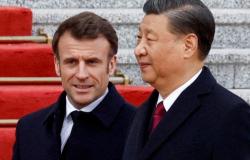The 4th edition of the Maghreb Book Fair which took place in Oujda, from April 17 to 21, marked a major turning point in the cultural life of the Oriental capital. It has enabled its international influence via the significant influx of publishers, booksellers, authors and researchers from the Maghreb and foreign countries. A look back at the highlights of this edition.
The 4th edition of “Lettres du Maghreb”, the Maghreb International Book Fair, recorded the participation of 200 exhibitors and 100 speakers from 18 countries. The program also included 19 round tables, 3 tributes and 20 book signings. With the main theme:
“Writing and time”, several panels at the Salon examined the various styles of writing that mark time.
Rich debates
At the opening of the event on April 17, Jalil Bennani, curator of the Salon, spoke of the North African vocation of the city of Oujda, indicating the Salon’s ambition to “bring international thinking.” Speaking on the main theme of this edition, “Writing and time”, Jalil Bennani stressed that “time influences writing” and that the two notions were inseparable.
Moreover, for him “writing bears the mark of time”. The panels organized throughout this edition were the spearhead, with themes that question contemporary socio-cultural challenges. These round tables illuminated this international show thanks in particular to the interventions of eminent intellectuals: Driss El Yazami (Morocco), Lamia Berrada-Berca (Morocco), Pierre Chopinaud (France), Sami Tchak (Togo) Bado Ndoye (Senegal), Jean -Pierre Elong Mbassi (Cameroon), Elvis Ntambua Mampuele (Congo)… Discussing the contemporary issue of the influence of digitization on Man and writing, the panel entitled “The digitization of the world and the question of writing” particularly captivated the audience.
Jean Lassègue, French researcher in human and social sciences and member of the National Center for Scientific Research (CNRS), spoke in particular on the future of writing in a context of the emergence of generative artificial intelligence. For him, software cannot replace human language. He explains in particular that our language and our writing are linked to human interactions that digital systems, however sophisticated they may be, cannot generate. “The intention of communication remains our privilege,” emphasizes Lassègue.
“Certainly, the automation of writing and language can result from formidable machines but do not produce anything new in the sense of original speech,” indicates the French researcher.
For her part, Clarisse Herrenschmidt, a Franco-Austrian archaeologist and philologist, compares digital writing to the automatic writing of the Surrealists. The historian of Antiquity and linguist indicates that digital writing is part of a history of more than 5,000 years. She explains that the digitization of writing is devoid of spirit capable of communicating feelings and emotions.
Furthermore, Andreas Pfeiffer, multimedia artist and editor-in-chief of the magazine “Sciences and Life Mac”, indicates that the digitalization of the world has deprived man of his most intense intimacy. It highlights the effect of social networks in the trivialization of the body or the role of search engines in exposing the sexuality of millions of Internet users around the world.
Tributes
Among the highlights which gave this edition both a spiritual and historical character, the posthumous tribute paid by the Salon to the famous publisher Abdelkader Retnani, on the evening of April 18, in one of the rooms of the Oujda regional library, which now bears his name. A documentary film recounting the exceptional journey of the publisher was screened at the opening of the event.
During his speech, Mouaad Jamai, wali of the Oriental, praised the great dedication of the deceased for the influence of culture in Morocco and the rest of Africa while recalling his love for the Raja de Casablanca club, including he was the president for several years.
For his part, Mohammed Mbarki, general director of the Oriental Agency, recalled the efforts undertaken by the late Abdelkader Retnani for the creation of the Maghreb Book Fair, in particular to give it an international character. Indicating that it is not “easy to be the son of Abdelkader Retnani”, Yacine, for his part, had tears in his eyes when talking about the heavy cultural heritage bequeathed by his father.
On this occasion, he announced the release of the latest book-length book signed by the publisher, on the “Green March” in four languages: French, English, Spanish and Arabic. He also announced that the publishing house La Croisée des chemins would offer its entire catalog to the Oujda Regional Library. Driss El Yazami, for his part, did not fail to emphasize that the deceased did not see culture as a complement, but rather as a necessity.
As a reminder, Abdelkader Retnani was born on July 31, 1945 in Casablanca and died on November 14, 2023. After studying management and political science, he turned to publishing and became a consultant for numerous international organizations such as the Intergovernmental Agency for the Francophonie and UNESCO. He was decorated by the late His Majesty Hassan II with Ouissam Alaouite in 1993 and received the Legion of Honor of the French Republic in 2013. Retnani has published more than 250 books on heritage and 2,500 novels and essays.
This edition also paid a posthumous tribute to the Moroccan writer and journalist Amina Al-Louh (1926-2015), on April 19, at the Salon’s “Literary Café”. The author of La Reine Khenatha, wife of Mawla Ismail, won the “Maroc Prize for Literature” in 1954. In particular, booksellers Najat El Mrini and Hasnaa Daoud took part in this tribute, as well as a host of intellectuals and by Moroccan and North African authors.
Ahmed Ibn Abdeljalil / ECO Inspirations






